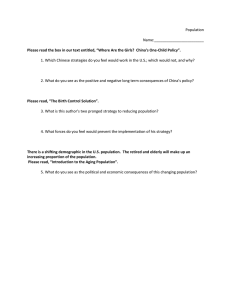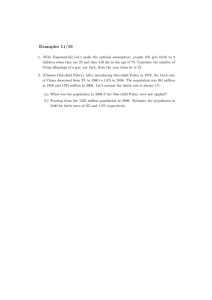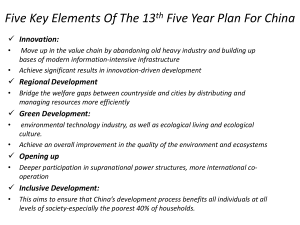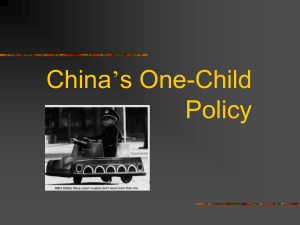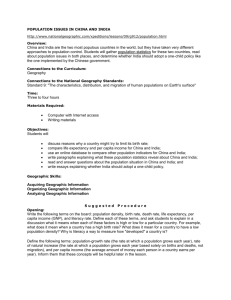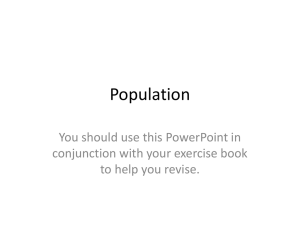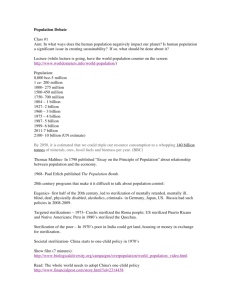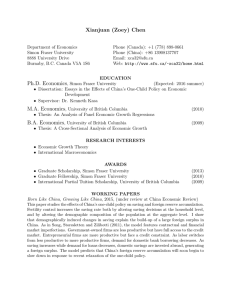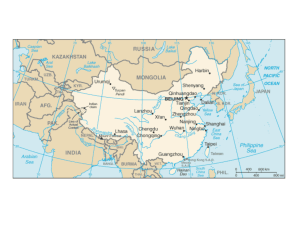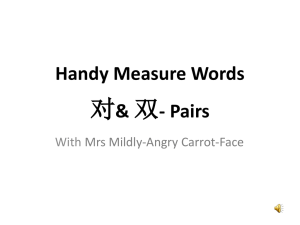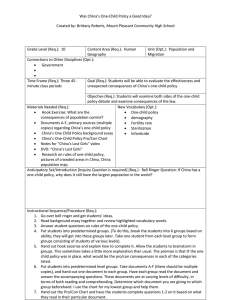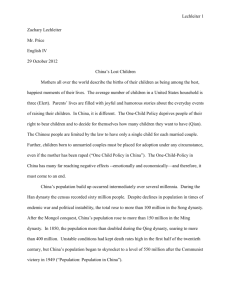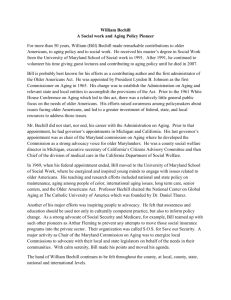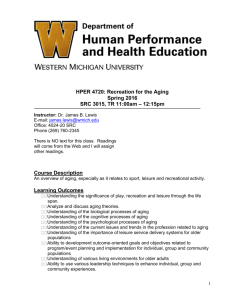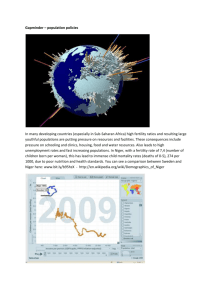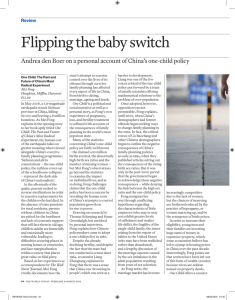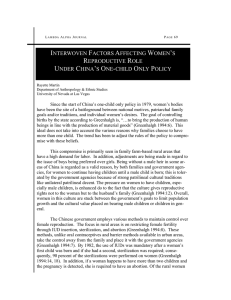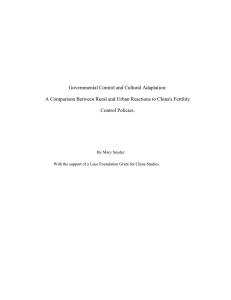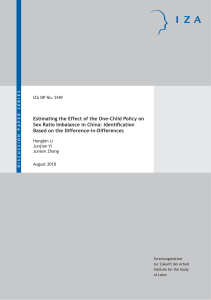China tries to pump new blood into aging
advertisement
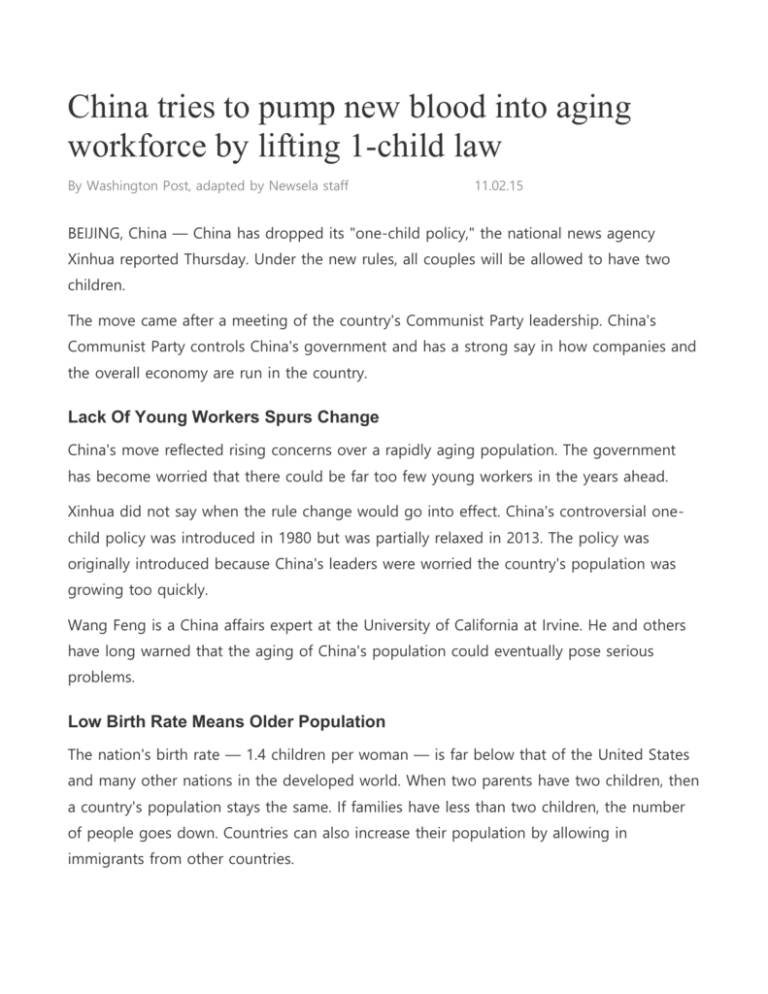
China tries to pump new blood into aging workforce by lifting 1-child law By Washington Post, adapted by Newsela staff 11.02.15 BEIJING, China — China has dropped its "one-child policy," the national news agency Xinhua reported Thursday. Under the new rules, all couples will be allowed to have two children. The move came after a meeting of the country's Communist Party leadership. China's Communist Party controls China's government and has a strong say in how companies and the overall economy are run in the country. Lack Of Young Workers Spurs Change China's move reflected rising concerns over a rapidly aging population. The government has become worried that there could be far too few young workers in the years ahead. Xinhua did not say when the rule change would go into effect. China's controversial onechild policy was introduced in 1980 but was partially relaxed in 2013. The policy was originally introduced because China's leaders were worried the country's population was growing too quickly. Wang Feng is a China affairs expert at the University of California at Irvine. He and others have long warned that the aging of China's population could eventually pose serious problems. Low Birth Rate Means Older Population The nation's birth rate — 1.4 children per woman — is far below that of the United States and many other nations in the developed world. When two parents have two children, then a country's population stays the same. If families have less than two children, the number of people goes down. Countries can also increase their population by allowing in immigrants from other countries. The low birth rate has led to a rapidly aging society. It has also led to increasing demands on the government, which has had to provide more health care and other kinds of support for the elderly. There has been a sharp drop in the supply of young labor as well. China needs many young, healthy workers to keep its factories and other industries running at full speed. The country's overall wealth could decline if too few people are working. Change Will Take A Generation, Experts Say While it is a positive step, the end of the one-child policy will do little to relieve the problem for years to come, experts warn. Wang called it "great news" even if the effects of the change will take a generation or more to be seen. "This really marks a historic point to end one of the most controversial and costly policies in human history," he said. However, he added, China will have to live with the effects of its one-child policy for many more years. China's working population fell for a third straight year in 2014, declining by 3.7 million to 916 million. The decline in workers is expected to increase in the years ahead, despite the new policy change. And The Nation Grows Grayer Meanwhile, the number of people aged 60 and above will approach 400 million, or a quarter of the population, in the early 2030s. The 60-plus population currently represents about a seventh of China's people. The one-child policy was first eased to allow couples to have a second child if either parent was an only child. Rural couples could already have a second child if their first child is a girl. However, that policy shift did not lead to a big pickup in birth rates. Money worries and the fact that people were used to the idea of having only one child meant many families decided to stay as they were. 1. It says ___________________________________________________________________________. I know ____________________________________________________________________________. So, I infer __________________________________________________________________________. 2. It says ___________________________________________________________________________. I know ____________________________________________________________________________. So, I infer __________________________________________________________________________. 3. It says ___________________________________________________________________________. I know ____________________________________________________________________________. So, I infer __________________________________________________________________________.
